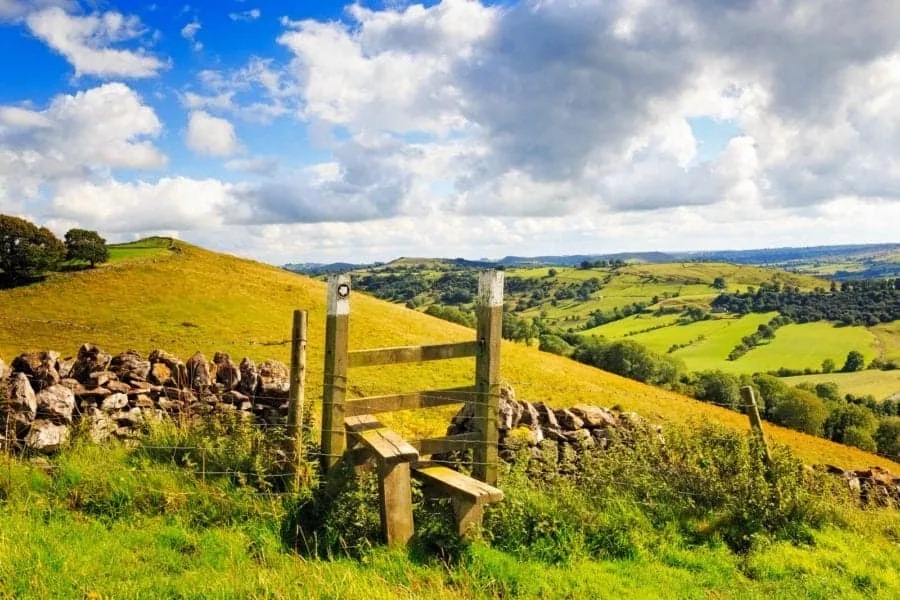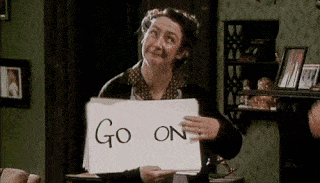So… yeah… this post is a bit more personal and a lot more off topic than usual. And yes, it is mostly a build up to a request for sponsorship. Sit tight, though… I’ll have a load more post-embargo originally appeared in Research Professional content to post over the coming weeks and months.
“So, how you are doing, Adam?”
“Good news and bad news, really.”
“Which do you want to tell me about first?”
“Both at the same time… I don’t have cancer…. any more”
In the middle of a house move, I found a lump where there probably shouldn’t have been a lump. The following day, I see a GP who agrees… that’s a lump where there shouldn’t be a lump. The day after I’m in for a blood test… the following week I’m seeing a specialist. Blood test negative (a good sign), lump is smooth and spherical (good sign), but it’s inside the testicle (bad sign). I know I’m in good hands when my specialist answers my question about what she thinks it probably is… she says she doesn’t know. Because she doesn’t. It takes confidence to admit that. Time for more tests.
The coolest person in the hospital – the Ultrasound Guy – does know. That it’s almost certainly a tumour… lots of indications that it is, nothing to indicate that it isn’t. The ultrasound guy is so ultra-sound that he’s holding clinics on Saturdays to catch up with a backlog. Phone call with the specialist a few days later confirms it… my right testicle and I will have to undergo a conscious uncoupling. Just over two weeks later – to allow for self-isolation and a negative COVID test – I’m in for surgery.
It’s a day procedure… it’s not going to be fun, but I’ve had a more serious operation before. If I can get through that, I can get through this. This too shall pass. Every decade or so, part of my body rebels against me and an example needs to be set pour encourager les autres. So it goes. It is known. At least I’ll not forget where I was when I heard the news about the death of the Duke of Edinburgh. Recovery is… slow and complicated by a post-op infection, eventually antibiotick-ed.
Week and a half later, and I’m back in for a CT scan. This time a backlog-clearing early evening appointment, held in a clinic on the sprawling, construction-scarred and largely deserted Nottingham City Hospital campus. The clinic is behind the archetypal door marked “Beware of the Leopard“, but eventually I find someone to take pity on me and give me directions. I’m late, flustered, and embarrassed, but fortunately my lateness is in perfect synchronization with their overrunningness. Also, they’re used to people being late, flustered, and embarrassed. They’re all very lovely to me, and the scanning isn’t nearly as bad as they’d led me to believe it might be.
Two weeks later, and I’m back for the results. And breathe. It’s good news. CT scan normal, biopsy shows that the tumour was small (22mm) and hadn’t spread. I had another blood test on the day, and that came back normal too. No chemo, as the marginal benefit isn’t worth the risk. There’s a very good chance the cancer won’t return, and if it does, there’s a very good chance it’s treatable. I’ll be under observation for five years or so. To paraphrase, if I absolutely insist on getting cancer, testicular cancer is the one to get. And if I absolutely insist on getting testicular cancer, get the type of testicular cancer I had, and seek medical attention immediately.
This post has been a bit flippant and contained some black humour, which is one way of coping and of making sense of things. Truth is, this was a very worrying time. There were always back-up options – if the cancer had spread, it would very probably have been very treatable. But then again, the lump had turned out to be a tumour rather than a cyst, so the odds had already gone against me once. They could do so again.
Why am I telling you all this?
Point One. Get your weird lumps and bumps checked out. Doing so will make them real, force you to drag that background ignore-able worry into the foreground where it’s harder to ignore. But think of it as consolidating your worries into a single manageable payment. It’s probably not cancer… it’s quite unlikely to be cancer. But if you check it out, you can forget about it.
Perhaps I should have started this blog post with the story of the time where I went to see my GP about a little lump on my back. Textbook cyst, said the GP. She was right. But she said I was right to come and see her about it, and I always should. True, I’ve got (nearly) all the privilege there is going, but I’m told that my experience is pretty common. Check everything out early. It’s better for you and it’s better for the NHS. The best time to get anything checked out is early. The second best time is now.
Point Two. All hail the NHS. Eight weeks from finding a lump to a result and an action plan. Eight weeks. In the middle of a global pandemic, folks. Cost to me, nil some prescription charges. Everyone is utterly lovely to me… Dr G, the GP who got me seen quickly at the beginning and antibiotic-ed me at the end. The Consultant willing to say she didn’t know. The ultrasound guy, who broke difficult news to me when he could have left it to the consultant. The whole surgical team. Everyone on oncology. In a US-style healthcare system, I dread to think about what this would have cost. I dread to think about how the cost of future cover would have restricted my professional and personal options.
Point Three. We’ve made huge progress in cancer research. For my particular flavour of cancer the research for treatments seems to have been largely done. But we’ve all lost people to cancer, many far, far too young. I lost a member of my extended family earlier this year. Shortly after I came round from surgery, I heard that a friend had died. His funeral took place on the morning of the afternoon when I received my results. He was a genuinely superb human being on every level and by every metric and I wish I’d known him better.
So we’re not yet where we need to be with cancer research. Not close. And the pandemic has been a real kick on the… teeth… for medical research in general. Their vital fundraising has been very seriously hit. Charity shops? Shut. Mass participation events, like the London Marathon? Cancelled. Not just the London Marathon, but your local city marathon or half marathon or 10k… all those sponsored walks or Races for Life? All gone. They’re struggling to honour existing research commitments, never mind fund vital new research.
If you’re wondering whether this is a build up to me asking for sponsorship for my latest act of folly, then yes, yes it is. Although… if there’s a charity that means more to you, and if you can afford it, support them instead. Or as well as. I don’t mind – the whole charity sector is struggling.

Long before my diagnosis, I’d arranged to take on the full, continuous Peak District Challenge, along with friends from my undergraduate and postgraduate days. It’s a 100km (62 miles) walk through the Peak District. Organisers estimate that the finish time – 20 – 36 hours. Sensible people attempt this over two days. We’re not sensible.
I’ve run a marathon before. Seven. But this is a very different kind of challenge. Weirdly, I’d feel happier if I were running rather than walking. All my marathons have been over inside four hours… 100km is endurance challenge that’s in a different league to anything I’ve tried before. Also, marathons don’t tend to have the Peak District in the way.
COVID has restricted our opportunities to train and prepare, especially on the right kind of terrain. Plus, you know… I’ve not been very well. It’s going to be an uphill struggle, and that includes the parts that are downhill. Go on, chuck us a few quid. Please? The link is to my friend John’s page, as we’re pooling our fundraising efforts. If anything I’ve written/tweeted has ever been any use to you, go on.


